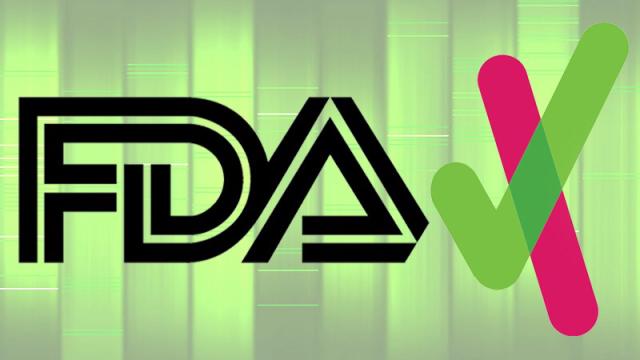The US Food and Drug Administration has cleared 23andMe to sell directly to customers a DNA test for gene mutations linked to breast cancer, making it the first consumer DNA testing company to win the agency’s approval for a cancer risk screening.
The new test will analyse DNA for three specific BRCA1 and BRCA2 breast cancer gene mutations. Though there are more than 1,000 known BRCA mutations, the 23andMe test will focus on three mutations most common in people of Ashkenazi Jewish descent. The variants are far less common in other populations.
Shirley Wu, 23andMe’s director of product science, told Gizmodo that the company focused on those three mutations because of the extensive body of scientific literature supporting their link to cancer, and hopes to eventually offer tests for other potentially harmful variants.
“This test offers high value to consumers,” Wu said. “The scientific validity is clear cut.”
Studies suggest that some 1 in 40 people of Ashkenazi descent has one of these three variants, Wu said, and women with one of the variants have a 45 per cent to 85 per cent chance of developing breast cancer by age 70. The genes also suggest a higher risk of ovarian cancer in women, and breast cancer in men.
“Traditionally you only would get tested for BRCA if you have a family history of cancer” said Wu. “We are providing a test people at risk that otherwise would have been missed. This is a giant step forward for consumers in giving them direct access.”
Eric Topol, a geneticist at the Scripps Institute, was more tempered in his enthusiasm.
“This is very limited information on three mutations that are known to be pathogenic for BRCA,” he told Gizmodo.
He said that more comprehensive but still inexpensive tests by companies like Colour offer a more complete picture of risk. The difference, though, is that Colour’s tests must be ordered by a physician.
“Those tested can get the false illusion that they are not carriers, when in fact they may have other of hundreds of known functional mutations,” Topol said. “The new offering by 23andMe is better than nothing, but we need to (and can) do far better.”
The FDA, in its announcement of the news, also noted that most cases of cancer are not caused by hereditary gene mutations. And a National Cancer Institute study, albeit one from 1997, found less prevalence of the mutation among women of Ashkenazi decent, detecting it in only 2 per cent of Ashkenazi Jewish people.
Still, at $US199 ($254), the test offers an inexpensive alternative to testing through a doctor’s office, which can end up costing thousands of dollars. And, as Wu pointed out, doctors generally do not suggest testing people without a family history that indicates the presence of a harmful mutation, though many women develop cancer despite a lack of family history of the disease, or do not know their family history.
Originally, 23andMe offered assessments for more than 250 diseases and conditions, but in 2013 the FDA cracked down and ordered the company to cease providing analyses of people’s risk factors for disease until the tests’ accuracy could be validated. Then last April, the FDA gave the company the go-ahead to market tests for 10 diseases or conditions directly to consumers. The company currently offers tests that assess the health risk of developing diseases including Alzheimer’s, Parkinson’s, and celiac, but the new test will be the company’s first to assess cancer risk. The company said that existing customers will have access to results for this test in the coming weeks.
Last fall, the FDA also announced that it was clearing the way for consumer health DNA tests to make it to market faster, without a pre-market review, but tests to assess cancer risk were not included in that exemption. In its review, the FDA examined 23andMe’s data to ensure that the test is accurate and can provide reproducible results, as well as reviewing the reports to ensure that they can be easily understood by a consumer.
This test is likely just the first of many cancer risk tests that 23andMe will roll out in the future.
